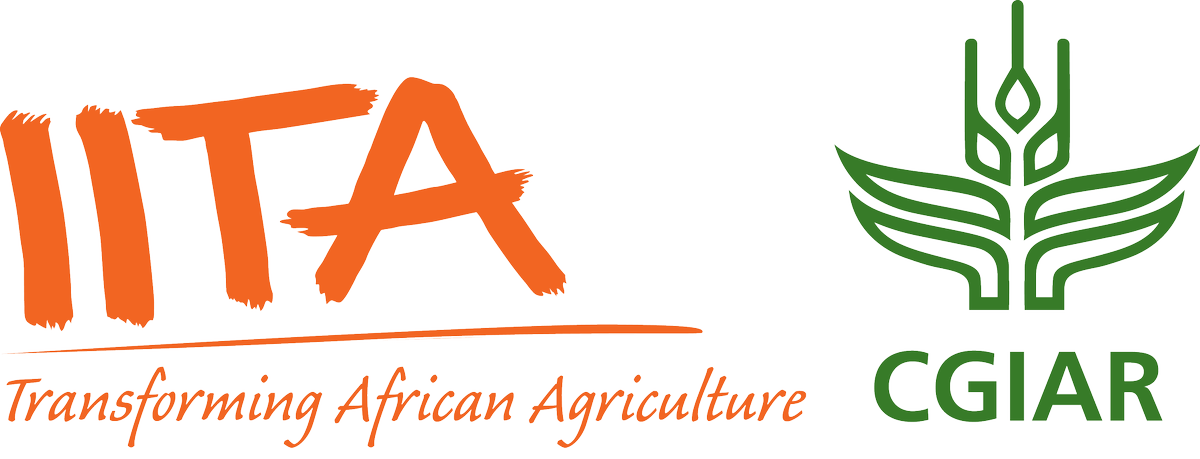Cassava Weed Management Data
Citation
Data and Resources
-
Herbicide_Screen_2015.csvcsv
Cassava Weed Management Data - Herbicide Screen 2015
-
Herbicide_Screen_2015_metadata.csvcsv
Cassava Weed Management Data - metadata for Herbicide Screen 2015
-
HerbScreen2015_Spp_AllLoc.csvcsv
Cassava Weed Management Data HerbScreen 2015
-
HerbScreen2015_Spp_AllLoc_metadata.csvcsv
Cassava Weed Management Data - Metadata for HerbScreen 2015 Spp All Loc
Additional Info
| Field | Value |
|---|---|
| Creator | Ekeleme, Friday |
| Creator Affiliation | International Institute of Tropical Agriculture (IITA) |
| Creator email | f.ekeleme@cgiar.org |
| Creator ID Type | ORCID |
| Creator ID | 0000-0001-6178-2606 |
| Subject Vocab (AGROVOC/GACS/CAB) | Weed,Weed Management,Weed Control,Herbicide Cassava,Maize,Nitrogen,Carbon,Calcium,Phosphorus,Potassium,Magnesium,Dry matter,pH,Sand,Silt,Clay,Sedge,Roots,Stem,Sprouts,Broadleaf,Intercropping,Monocropping,Grass,Harvesting |
| Subject(s) | Cassava Agronomy,weed density,weed biomass cassava root yield and yield attributes,maize cob and grain yield,Weed density,Weed biomass cassava root yield and yield attributes,Maize cob,Grain yield |
| Publisher | International Institute of Tropical Agriculture (IITA) |
| Contributor Person 1 | |
| Contributor Person 1 Affiliation | |
| Contributor Person 1 email | |
| Contributor Person 2 | |
| Contributor Person 2 Affiliation | |
| Contributor Person 2 email | |
| Contributor Person 3 | |
| Contributor Person 3 Affiliation | |
| Contributor Person 3 email | |
| Contributor Person 4 | |
| Contributor Person 4 Affiliation | |
| Contributor Person 4 email | |
| Contributor Person 5 | |
| Contributor Person 5 Affiliation | |
| Contributor Person 5 email | |
| Contributor Person 6 | |
| Contributor Person 6 Affiliation | |
| Contributor Person 6 email | |
| Contributor Person 7 | |
| Contributor Person 7 Affiliation | |
| Contributor Person 7 email | |
| Contributor Person 8 | |
| Contributor Person 8 Affiliation | |
| Contributor Person 8 email | |
| Contributor Person 9 | |
| Contributor Person 9 Affiliation | |
| Contributor Person 9 email | |
| Contributor Person 10 | |
| Contributor Person 10 Affiliation | |
| Contributor Person 10 email | |
| Contributor Person 11 | |
| Contributor Person 11 Affiliation | |
| Contributor Person 11 email | |
| Contributor Person 12 | |
| Contributor Person 12 Affiliation | |
| Contributor Person 12 email | |
| Contributor Person 13 | |
| Contributor Person 13 Affiliation | |
| Contributor Person 13 email | |
| Contributor Person 14 | |
| Contributor Person 14 Affiliation | |
| Contributor Person 14 email | |
| Contributor Person 15 | |
| Contributor Person 15 Affiliation | |
| Contributor Person 15 email | |
| Contributor Person 16 | |
| Contributor Person 16 Affiliation | |
| Contributor Person 16 email | |
| Contributor Person 17 | |
| Contributor Person 17 Affiliation | |
| Contributor Person 17 email | |
| Contributor Person 18 | |
| Contributor Person 18 Affiliation | |
| Contributor Person 18 email | |
| Contributor Person 19 | |
| Contributor Person 19 Affiliation | |
| Contributor Person 19 email | |
| Contributor Project Lead Organisation Center | International Institute of Tropical Agriculture (IITA) |
| Contributor Project Lead Center | International Institute of Tropical Agriculture (IITA) |
| Contributor Initiative/CRP | CGIAR Research Program on Roots, Tubers and Banana(RTB) |
| Contributor Partner | Natioanl Roots Crop Research Institute (NRCRI), Federal University of Agriculture Abeokuta (FUNAAB), Federal University of Agriculture Makurdi (UAM) |
| Contributor Donor | Bill and Melinda Gates Foundation (BMGF) |
| Contributor Project | Sustainable Weed Management Technologies for Cassava Systems in Nigeria |
| Project ID | |
| Contributor Affiliation | International Institute of Tropical Agriculture (IITA) |
| Open-Access status | Open Access |
| Production Date | 2020-01-21 |
| Embargo End Date | 2025-01-21 |
| Content Type | Dataset |
| File Format | csv |
| Identifier Type | DOI |
| Identifier | https://doi.org/10.25502/j046-5k77/d |
| Identifier Citation | Ekeleme Friday, Stefan Hauser, Godwin Atser, Alfred Dixon, Stephen Weller, Patience Olorunmaiye, Hughes Usman, Adeyemi Olojede, David Chikoye (2016). Weed Management in cassava in Africa: challenges and opportunities. Outlooks on Pest Management 27(5): 206-212. |
| Source | Sustainable Weed Management Technologies for Cassava Systems in Nigeria |
| Language | English |
| Relation | Not applicable |
| Agroecological Zone | Subhumid warm tropics |
| Coverage Region | Western Africa |
| Coverage country | Nigeria |
| Coverage Admin Unit | Not applicable |
| Coverage Y (Latitude) | 4.92999, 6.33621, 7.35083, 6.90753, 7.84296, 4.85808 |
| Coverage X (Longitude) | 7.87216, 7.40840, 8.83628, 3.58127, 3.93684, 6.92091 |
| Coverage Start Date | 2014-06-13 |
| Coverage End Date | 2019-07-06 |
| Contact | Ekeleme, Friday Principal Investigator - SWMT for Cassava Systems in Nigeria, International Institute of Tropical Agriculture (IITA) |
| Contact Email | f.ekeleme@cgiar.org |
| Restriction | CC-BY 4.0 |
| Email Permission | None |
| Rights | CC-BY 4.0 |
